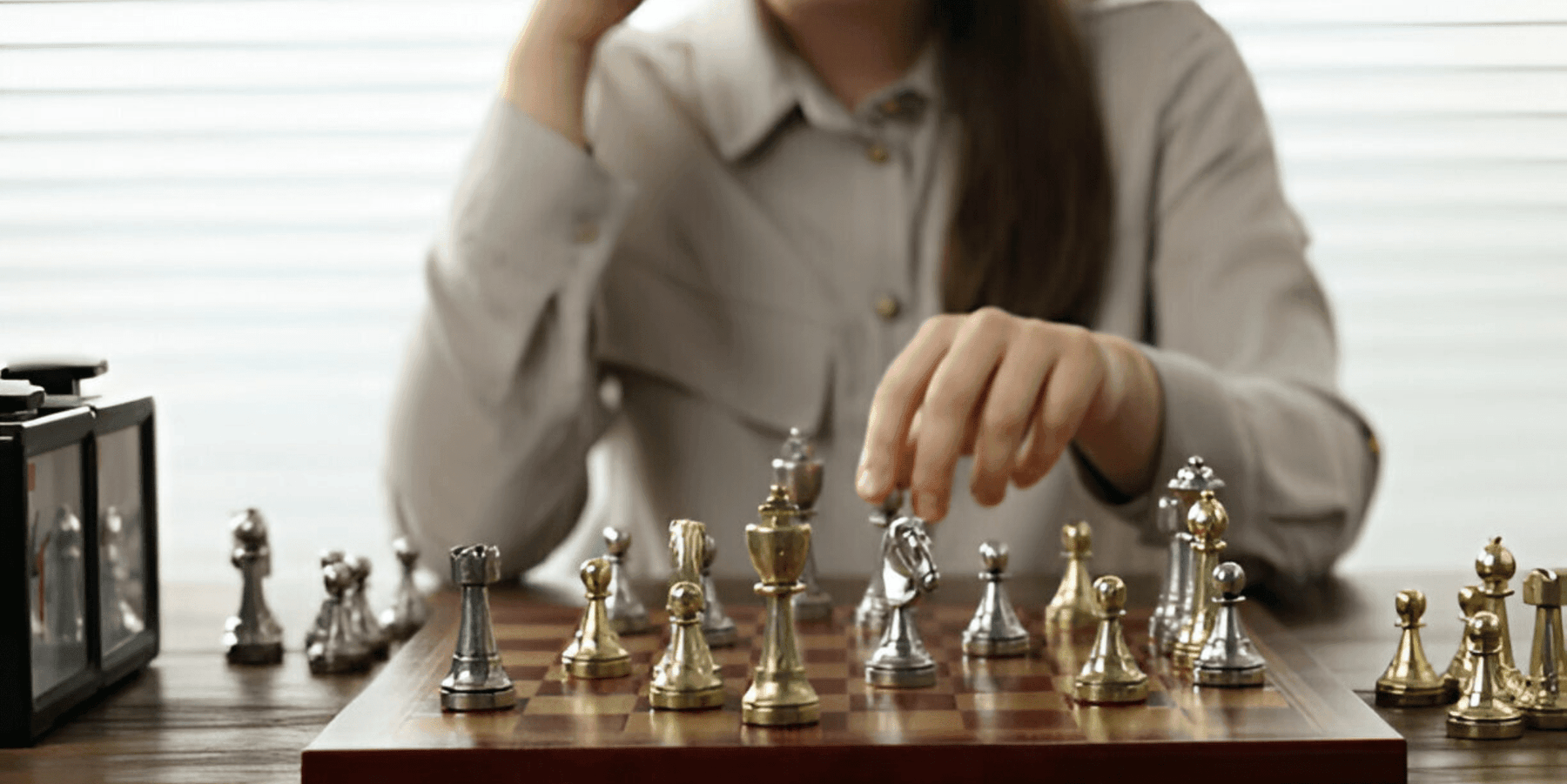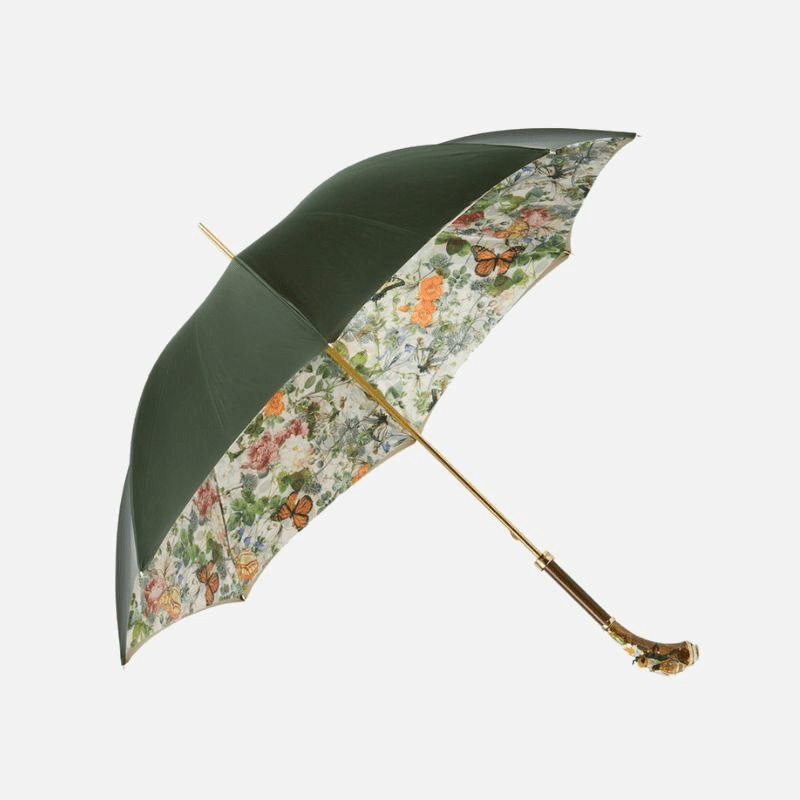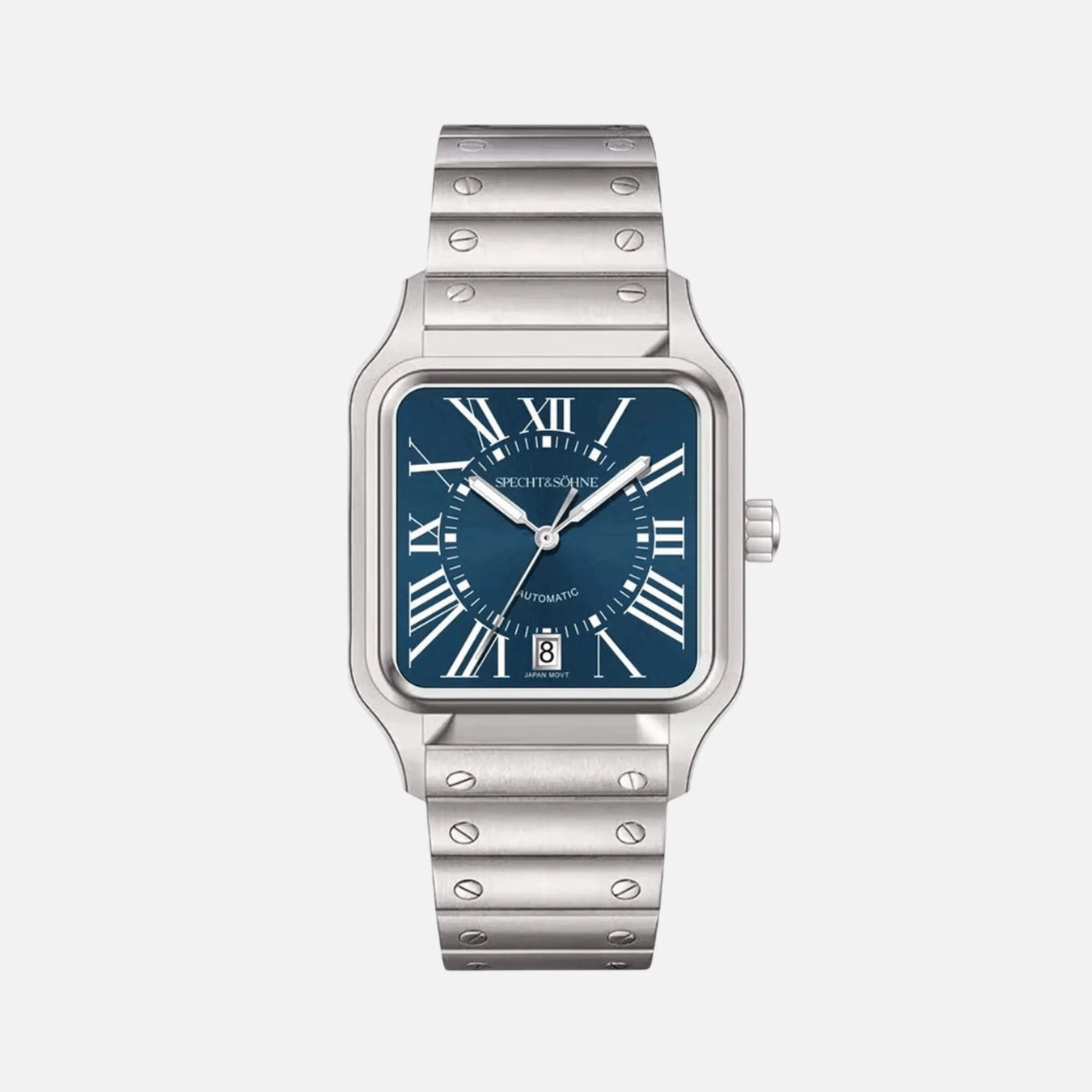
The Cognitive Workout: Exploring the Mental Benefits of Playing Chess
Introduction to the Intellectual Game of Chess
Chess is often celebrated as the quintessential intellectual game. A combination of strategy and foresight is encapsulated in the 64 squares of the chessboard, where each move is a confluence of analytical thinking and artistic impression. The enthralling game is played with a set of wooden chess pieces, each piece having its own unique role and power, artfully carved and embodying centuries of tradition and tactical depth.
As one marvels at a set of large wooden chess pieces, it’s apparent that chess is not just a game but also a work of art. Luxury chess pieces are highly sought after, revered not only for their strategic importance on the board but also for their aesthetic appeal. Such beautiful chess pieces not only serve as implements of a cerebral contest but also as heirlooms, often considered a thoughtful gift for dad or a cherished collectible reflective of craftsmanship akin to contemporary trends in luxury walking cane design and aesthetics.
This intellectual exercise has been lauded for its cognitive benefits. Engaging in a game of chess demands concentration, forces critical thinking, and promotes problem-solving skills. It’s a cognitive workout that challenges the mind, akin to navigating the intricacies of an intricate piece from a cherished collection, such as those found at Art 809125.
For aficionados wishing to learn more, it’s worth consulting a dedicated FAQ section that sheds light on the finer points of the game or exploring an ‘About Us’ page to delve into the heritage and ethos behind the creation of exquisite chess sets. Whether you are a beginner or a seasoned player, the intricate interplay between the cognitive demands and the competitive spirit of chess makes it an enriching experience for the mind.
Historical Context: Chess as a Brain Trainer Through the Ages

Chess has long been lauded for its complex strategic depth and potential to serve as a tool for cognitive enhancement. Tracing its lineage back over a millennium, with origins shrouded in the pages of history across multiple cultures, chess has evolved beyond mere entertainment. Although the modern game took shape in Europe during the 15th century, its essence as a battle of wits transcends time and geography.
In medieval times, a set of wooden chess pieces represented not only the game’s inherent beauty but also the intellectual status of its players. Art and sophistication were woven into the game; every carved piece symbolized the fusion of aesthetics and strategy. Nobility and scholars alike found in chess a mirror for real-life tactics and foresight, honing their mental faculties across the board.
During the Renaissance, chess became a testament to luxury and opulence. A set of large wooden chess pieces, often intricately detailed and crafted from valuable materials, served as a prestige symbol among the elite. Luxurious chess pieces became prized possessions, comparable to the contemporary trends in luxury walking cane design and aesthetics—both signifiers of culture and refinement.
In the age of enlightenment and beyond, scientific inquiry into human cognition spurred interest in chess as a brain trainer. Intellectuals and academics debated its merits, considering its impact on memory, problem-solving, and strategic planning. This ethos persists in modern times, where beautiful chess pieces and chess sets often stand as a gift for dad or mentor, not only for their grandeur but also as a totem of intellectual challenge and growth.
Today, the cognitive benefits of chess are recognized not just by tradition, but by empirical research. The time-tested game continues to stand as a testament to human intelligence—a cerebral gymnasium where minds from all walks of life can spar, grow, and flourish.
Cognitive Skill Enhancement Through Chess

Playing chess is akin to navigating an intricate labyrinth of strategic possibilities, where each move demands careful contemplation and foresight. This ancient game, often depicted with a set of wooden chess pieces artfully arrayed on a board, serves not merely as a pastime but as a sophisticated cognitive enhancer.
Chess stimulates critical thinking, a cognitive skill central to problem-solving and decision-making. When players weigh the pros and cons of a particular move, they engage in analysis and synthesis, honing their ability to assess complex situations both on and off the board.
Moreover, the game enhances memory. Memorizing a variety of chess openings and endgames, much like learning about classic to contemporary trends in luxury walking cane design, cultivates an attention to detail and recall—a gift for dads and thinkers alike.
Enhanced concentration is another benefit. The focus required to keep track of each piece, from luxury chess pieces to the humble pawn, requires sustained attention and discipline, qualities transferable to a multitude of intellectual pursuits.
Planning and foresight are inherently developed in chess. As players must anticipate their opponent’s moves and plan accordingly, they foster the skill of prediction and foresight. The game itself becomes a simulator for real-life situations where strategic planning is crucial.
Lastly, chess improves problem-solving skills. Each game presents a new set of challenges that demand innovative solutions, sharpening the player’s ability to navigate obstacles and puzzles. These are attractive traits in any intellectual endeavor, and chess offers a training ground for their development.
In summary, engaging in chess is more than a leisure activity within a luxuriously crafted set. It’s a gateway to enhancing a broad spectrum of cognitive abilities, providing a mental workout as elegant and intricate as the finest wooden chess set in our collection. For further insight into the cognitive benefits of chess, please visit our FAQ section or contact us directly for a more personalized exploration of this cerebral sport.
Memory Improvement and Chess Strategy

Chess is not solely a game; it is a rigorous mental exercise. Engaging in this exercise regularly with a set of wooden chess pieces, such as art 809125, may lead to considerable improvements in memory. The focus required to remember the moves and strategies of one’s own and the opponent’s during a game stimulates the memory centers in the brain, enhancing recall abilities.
Playing chess with a set of large wooden chess pieces accentuates the tactile experience, which can further reinforce memory. Luxury chess pieces not only add aesthetic value to the game but can also make the engagement more memorable, enhancing the cognitive workout chess provides. As a beautiful chess piece moves across the board, the player must not only consider current tactics but also anticipate future consequences, thereby fine-tuning their strategic thinking.
Moreover, just as the trends in luxury walking cane design range from classic to contemporary, chess strategies also evolve. Adapting to contemporary strategies requires chess enthusiasts to continually update their strategic repository, thus exercising and improving memory. This cognitive challenge is akin to an FAQs page, where the mind is constantly retrieving and updating information to remain current and effective.
About us pages on chess-related websites often highlight the mental benefits of the game, and memory development is a key factor. Each match becomes a gift for Dad, a friend, or oneself, not just in terms of enjoyment but also as an investment in cognitive health. High-level chess strategy necessitates a significant amount of memory work, as players track the progress of the game, anticipate their opponent’s moves, and adapt their strategies accordingly, continually sharpening their mental faculties.
The Role of Chess in Problem-Solving Skill Development

Playing chess involves a high level of cognitive engagement, challenging players to foresee potential outcomes, devise strategic plans, and adapt to their opponent’s moves. It’s a mental exercise akin to lifting weights for the brain, where each move sharpens problem-solving skills and critical thinking abilities. The role of chess in the development of problem-solving skills cannot be overemphasized.
For many enthusiasts, a set of wooden chess pieces art 809125 isn’t merely for aesthetic appreciation; each piece symbolizes a unique opportunity to solve complex problems. As players maneuver large wooden chess pieces across the board, they engage in advanced pattern recognition, foreseeing the ramifications of each potential move. This directly translates to enhanced decision-making skills off the board, as the cognitive processes polished during a chess game are applicable in everyday scenarios.
Likewise, players who appreciate luxury chess pieces often find that the beauty of the game is matched by its cognitive benefits. Immersed in a game of chess, similar to admiring beautifully crafted gift for dad, individuals experience intricate problem-solving scenarios that may stimulate neural growth, offering long-term mental dexterity benefits.
From moment to moment, the game exemplifies from classic to contemporary trends in how cognitive skills are honed - much like the evolving designs seen in luxury walking cane aesthetics. Chess enforces the need to stay dynamic and flexible in problem-solving approaches, mirroring life’s unpredictable nature.
In summary:
- Chess encourages advanced pattern recognition and strategic thinking.
- It allows players to practice foresight by assessing multiple outcomes.
- Like appreciating beautiful chess pieces or luxury walking cane designs, chess offers intricate cognitive stimulation.
- The adaptability required in chess is applicable to real-world problem-solving.
FAQs about the benefits of chess on cognitive abilities reveal an overwhelmingly positive impact. For individuals keen on understanding how a mere game translates to a powerful mental workout, ‘About Us’ sections on chess-related sites often provide insight into the profound ways chess cultivates essential cognitive capabilities.
Chess and the Enhancement of Concentration and Focus
Chess, often perceived as a cerebral board game, is renowned for its capacity to enhance concentration and focus, akin to the precision and attention to detail found in the crafting of a set of luxury wooden chess pieces. Whether engaging with a classic set of wooden chess pieces art 809125 or interacting with large wooden chess pieces designed to be a gift for dad, the intricacies of the game demand unwavering attention from the players.
The cognitive demands of chess are such that they encourage players to cultivate a deep level of concentration. During a game, the player must maintain focus on:
- Strategic planning and the anticipation of the opponent’s moves
- Tactical calculations, often involving multiple steps ahead
- Constant evaluation and re-evaluation of the board state
This intense focus can be seen as a mental workout, with each match serving as a session that strengthens the brain’s ability to concentrate. Notably, the aesthetic appeal of beautiful chess pieces has been linked to maintaining interest and focus during the game. The satisfaction derived from handling beautifully crafted pieces, such as those found in contemporary trends in luxury walking cane design and aesthetics, mirrors the intellectual fulfillment players find in chess.
Furthermore, the skills of concentration and focus honed in chess transfer to other areas of life, suggesting that regularly engaging in the game could result in broad cognitive benefits. Questions regarding the impact of chess on mental acuity (FAQ) reflect a growing understanding that chess is more than just a pastime; it is a sophisticated tool for cognitive enhancement.
For more information on how the strategic complexities of chess can improve your mental faculties, visit our About Us page and discover the myriad ways in which this ancient game continues to challenge and develop the mind.
Pattern Recognition and Tactic Planning in Chess

Engaging in a battle across the 64 squares of the chessboard not only hones strategic thinking but also fortifies the cognitive prowess attributed to pattern recognition and tactic planning. Much like discerning the value in a set of large wooden chess pieces, luxury chess pieces, or the perfect gift for dad in the form of a visually stunning chess set (Art 809125), the mind learns to identify intricate patterns on the chessboard – a skill that is transferable to various aspects of problem-solving in life.
The cerebral act of playing chess requires players to meticulously assimilate an array of potential moves and outcomes. It is akin to analyzing contemporary trends in luxury walking cane design, where one examines both the aesthetics and functional aspects to forecast future design directions.
Each move in chess is a decision-making process, with the brain scanning past experiences and knowledge much like an FAQ section provides answers based on cumulative wisdom. The refinement of these cognitive functions through chess echoes the evolvement of craftsmanship from classic to contemporary.
Tactic planning in chess goes beyond immediate gain; it embodies foresight, much like the careful consideration that goes into choosing beautiful chess pieces that not only stand the test of time but also reflect the player’s personal style. It is a mental exercise that cultivates patience, attention to detail, and an appreciation for thinking several moves ahead.
As chess players navigate through their permutations, the About Us sections of their minds—the part holding their core cognitive identity—are actively involved. By understanding one’s mental strengths and weaknesses, a player can craft a personalized strategy that appears deceptively simple yet is profoundly complex, mirroring the essence of a set of wooden chess pieces artfully organized for victory.
Chess: A Playground for Critical Thinking and Analysis

Chess is not merely a game; it is an intricate dance of strategy, foresight, and intricate decision-making. For individuals looking to enhance their mental capabilities, the chessboard serves as a proving ground, a place where one’s cognitive abilities are both challenged and nurtured. Each move is deliberate, a testament to the necessity for critical thinking—a skill that, when refined through chess, can permeate every aspect of life.
Players must engage in deep analysis, anticipating not only their own trajectory with each shift of a set of wooden chess pieces (art 809125) but also predicting the countermoves of their opponents. Every decision is an intersection of logic, pattern recognition, and strategic planning. This constant evaluation and re-evaluation of the board develops analytical skills that are fundamentally important in problem-solving and decision-making scenarios outside the chess realm.
When individuals select a set of large wooden chess pieces, they’re not just choosing luxury chess pieces; they are investing in tools that facilitate a mental workout. These beautiful chess pieces, which can be a perfect gift for dad or any loved one, symbolize the gravitas of each tactical decision made during play.
The evolution of chess, from classic to contemporary, mirrors trends in luxury walking cane design and aesthetics, indicating an appreciation for both form and function. This evolution also reflects the game’s ability to adapt and remain relevant as an intellectual exercise throughout the ages.
Frequently Asked Questions (FAQs) about chess often revolve around its complexity and potential mental benefits. Critical thinking and analysis are at the forefront, and enthusiasts quickly learn that the skills honed while navigating through a game of chess are transferrable and advantageous in a multitude of real-world situations. It is a cognitive workout like no other, offering a blend of an age-old strategic game and a tool for mental enhancement.
The Social and Emotional Intelligence Benefits of Chess
While many recognize chess as a cognitive workout par excellence, fewer appreciate its profound impact on social and emotional intelligence. Mastery of the game requires not only astute strategic thinking but also the development of skills that are deeply social and emotional in nature.
Playing chess, particularly with a set of large wooden chess pieces, can be a multisensory experience that enhances one’s ability to read and respond to an opponent’s body language, emotional state, and intentions. As two players face each other, perhaps over a board adorned with luxury chess pieces, they engage in a silent dialogue that can foster empathy, patience, and understanding.
Emotional self-regulation is another crucial benefit derived from chess. A player must learn to manage both triumphs and defeats with grace—an emotional resilience that translates well beyond the 64 squares. This assists in developing a composed demeanor that is appreciated in many other facets of life. It is a perfect gift for dad or any loved one looking to build emotional depth.
Chess also promotes socialization, providing a platform for interaction that transcends age, culture, and background. From classic chess clubs to contemporary online forums, players find community and camaraderie. Much like the evolution from classic to contemporary trends in luxury walking cane design and aesthetics, chess has adapted to connect enthusiasts from various walks of life, teaching adaptability and cultural sensitivity.
Moreover, chess imparts a profound lesson on consequence and accountability—every move has a reaction that players must anticipate and accept. The game enforces a heightened awareness of one’s actions and their impacts on others, pivotal in nurturing a conscientious attitude in interpersonal relationships.
Chess, therefore, is not merely a pastime; it’s a facilitator of emotional growth and social connectivity that can contribute significantly to personal development.
Comparative Study: Chess Players vs. Non-players Cognitive Abilities
Investigating the cognitive distinctions between chess players and non-players reveals substantial differences attributable to the strategic nature of the game. Chess necessitates a multifaceted intellectual approach, combining memory, analysis, and problem-solving, which seems to give practitioners a cognitive edge.
Firstly, memory enhancement is evident in individuals who engage regularly with chess. A player must recall the moves, strategies, and patterns observed in past games. Hence, chess players are often found to have superior memory abilities compared to non-players.
Secondly, analytical abilities are significantly honed in chess players. They must evaluate the implications of each move, both immediate and long-term. This ability to dissect and scrutinize complex situations extends into real-world problem solving, making it a robust cognitive benefit.
Moreover, studies have indicated that chess players exhibit improved pattern recognition skills. The interconnected nature of the game conditions players to recognize complex patterns, a skill that translates effectively into everyday cognitive tasks.
Chess also promotes the development of planning and foresight. Players must consider the future consequences of their actions, a skill linked closely with executive functions of the brain. These functions are crucial for success in a myriad of life’s domains, from personal to professional.
Furthermore, decision-making abilities are enhanced in chess players due to the game’s demand for swift, yet calculated decisions. This practice may bolster their capacity to make more precise decisions in life when compared to those who do not play chess.
Through a set of unique cognitive exercises, akin to the strategic maneuvering of a set of wooden chess pieces art 809125, or the prestige associated with deploying luxury chess pieces, chess players tend to outperform non-players in various cognitive domains. Whether using beautiful chess pieces, a gift for dad, or engaging with trends in luxury walking cane design, the cognitive strategies developed in chess appear to be universal.
FAQs on the influence of chess on cognitive abilities often reinforce the findings of comparative studies between chess players and non-players. The mental workout provided by chess aligns with contemporary understandings of cognitive enhancement, suggesting that the practice of this ancient game could be aligned with various cognitive benefits, much like the evolving design and aesthetics from classic to contemporary in luxury items.
About us sections in gaming spaces often highlight these cognitive benefits to emphasize the intellectual merits of engaging with chess, offering an additional layer of appreciation for the game as not just a pastime but a tool for cognitive development.
Practical Tips: Integrating Chess into Your Cognitive Workout Routine
Incorporating chess into one’s cognitive fitness regime can be both rewarding and mentally stimulating, akin to selecting a set of wooden chess pieces, art 809125, for their tactile and visual pleasure. To seamlessly blend chess into a cognitive workout routine, consider the following strategies:
- Set Realistic Goals: Establish achievable benchmarks, such as mastering a new opening every month or improving your Elo rating by a certain number of points.
- Regular Practice: Dedicate a specific time each day or week to play chess. Consistency is key to reaping the cognitive benefits.
- Diversify Opponents: Challenge yourself by playing against a variety of opponents with different skill levels and strategies.
- Analyze Your Games: Use chess software or a mentor to go over your games; identify mistakes and learn from them.
- Puzzle Solving: Integrate chess puzzles into your routine to improve problem-solving skills and pattern recognition.
- Study Chess Theory: Read books, watch tutorials, and follow chess streams to understand the intricacies of the game.
- Physical Exercise: Combine cognitive exercises with physical activity, as physical fitness can enhance overall brain function.
- Mindfulness and Patience: Cultivate a mindset that appreciates the process of learning, much like admiring the craftsmanship of luxury chess pieces or the evolution from classic to contemporary trends in luxury walking cane design and aesthetics.
- Chess as a Social Activity: Join a chess club or community to stay motivated and share knowledge.
Remember that the essence of chess as a cognitive exercise is not merely in winning but in the rich journey of learning and mental growth it provides—like finding the perfect beautiful chess pieces or a thoughtful gift for dad that also enriches his intellect. By integrating chess into your cognitive routine, you create a truly holistic workout for the mind.
Innovations in Chess: How Technology is Expanding Mental Training Horizons

Technological advancements have had a transformative effect on the traditional game of chess, taking it beyond a set of wooden chess pieces on an 8x8 board. Today, a myriad of digital platforms and software have emerged, making the mental workout of chess more accessible and varied than ever before.
-
Artificial Intelligence (AI) Coaches: With AI becoming more sophisticated, virtual coaches can now provide personalized training programs. These programs analyze a player’s games, identify weaknesses, and suggest tailored strategies for improvement.
-
Online Chess Libraries: Vast databases of historical games, like those involving luxury chess pieces from significant tournaments, are now at players’ fingertips. Players can study the moves of grandmasters, enriching their strategic understanding and mental frameworks.
-
Virtual Reality (VR) Chess: VR technology has enabled players to immerse themselves in three-dimensional chess experiences. This not only elevates the enjoyment factor but also aids in the visualization and spatial awareness aspects of chess training.
-
Mobile Chess Applications: With apps available for smartphones and tablets, players can practice their tactics anytime, anywhere - turning idle moments into productive mental training sessions.
-
Social Media and Streaming: Platforms such as Twitch and YouTube have cultivated communities where enthusiasts can watch live chess matches, engage in discussions, and learn from more experienced players.
-
Electronic Chess Boards: Bridging the gap between the tactile feel of a set of large wooden chess pieces and the digital world, these smart boards record moves for post-game analysis while still providing the physical sensations of traditional chess.
In addition to enhancing cognitive capabilities, these innovations have opened up new avenues for chess-related gifts, from beautiful chess pieces as a gift for dad to the latest in luxury walking cane design for the chess aficionado. As technology continues to influence chess, players are equipped with an ever-expanding arsenal of tools for mental conditioning and entertainment. This intersection of chess with cutting-edge technology reflects the broadening landscape from classic to contemporary trends both in gaming and in thoughtful product aesthetics.
Chess in Education: Teaching Methods and Cognitive Growth
Incorporating chess into educational curricula has become increasingly popular, driven by the recognition that the game offers more than just recreational value. As educators integrate chess instruction, they rely on a variety of teaching methods to engage students and maximize cognitive benefits.
One approach involves using a set of wooden chess pieces, art 809125 -style, which are not only aesthetically pleasing but also serve as tactile tools for hands-on learning. The familiarity and luxury of beautifully crafted wooden pieces can transform the learning experience, making abstract concepts more concrete.
Specialized educational programs often include a set of large wooden chess pieces. These luxury chess pieces are particularly useful for classroom demonstrations, allowing for clear visibility and understanding of the game’s mechanics. They are not only practical but also serve as a beautiful chess piece gift for dad, mentors, or teachers who value the game’s educational impact.
For cognitive growth, chess teaches strategic thinking, problem-solving, and the ability to anticipate consequences. It helps students improve their memory and enhances concentration. Teachers use chess to illustrate the importance of planning and foresight in decision-making processes.
Contemporary trends in education also explore the aesthetic aspect of chess. From classic to contemporary, trends in luxury walking cane design and aesthetics parallel how chess is taught, with an emphasis on elegance, attention to detail, and fine craftsmanship. Such attention to aesthetics can increase student engagement and interest in the game.
Educators often rely on a frequently asked questions (FAQ) format to address common concerns and to introduce the game’s complexities gradually. Custom-designed chess programs fit into the broader curriculum, fostering cognitive growth not only through the rules and strategies of the game but also through its history and evolution.
Ultimately, chess in education is about developing critical thinking and intellectual endurance. It is an investment in students’ cognitive development, with the game serving as the training ground for young minds to explore and expand their mental capabilities.
Beyond the Game: Transferable Skills from Chess to Everyday Life
The intricate maneuvers of a set of wooden chess pieces on the board encapsulate more than a strategic pastime; they cultivate skills highly applicable to the arena of life. Like a set of large wooden chess pieces, each move in chess represents a decision made with precision and forethought, an approach equally valuable in personal and professional environments.
-
Strategic Planning: Chess trains the mind to look at the big picture and consider the long-term implications of actions, akin to planning life goals or business projects.
-
Problem-Solving: Just as one would navigate the complexities of luxury chess pieces maneuvering for a checkmate, individuals learn to tackle real-world problems with creativity and critical thinking.
-
Concentration and Focus: The level of attention required to anticipate an opponent’s strategy in chess mirrors the concentration needed to complete tasks efficiently in daily life.
-
Patience and Discipline: Much like the careful consideration before moving a beautiful chess piece, patience in chess teaches restraint, and discipline—virtues that are invaluable in managing life’s challenges.
-
Risk Assessment: Identifying when to make a bold move or when to play it safe in chess parallels the ability to assess risks and make informed decisions in life’s myriad situations.
-
Resource Management: Managing a chess army’s positions and potential, much like a luxury walking cane must balance aesthetics and function, reflects the skill of resource allocation in personal finance or project management.
A gift for dad, or anyone intent on personal growth, is found within the cognitive workout chess provides. It trains the brain to be adaptable and resilient—attributes that echo strongly in everyday life.
In conclusion, these skills, honed over the chessboard, are transferable to a wide range of contexts. From classic to contemporary, much as trends in luxury walking cane design evolve, so too can an individual’s approach to life’s varied challenges, with the strategic elegance of a chess grandmaster.
Future Research Directions: The Untapped Potential of Chess in Cognitive Science

Chess has been metaphorically allied with the cognitive labyrinth of the human mind. Despite significant research delineating the mental benefits of playing chess, future explorations can tap into the vast potential that remains uncharted. Chess facilitates a unique cognitive workout, and its implications for cognitive science are profound and far-reaching.
Researchers can delve into the developmental impact of chess on neuroplasticity. Understanding how a set of wooden chess pieces artfully maneuvered across a board can influence the structural and functional changes within the brain will be invaluable. The hypothesis is that regular engagement with chess could foster cognitive resilience, potentially delaying or ameliorating the onset of neurodegenerative disorders.
Additionally, the inclusivity of chess as a cognitive tool paves the way for inclusive studies across diverse demographics. This includes detailed analysis of how chess impacts different age groups, from the cognitive development of children to the preservation of cognitive acuity in the elderly.
Investigations into the realm of luxury chess pieces, such as a set of large wooden chess pieces or beautiful chess pieces usually gifted for dad on special occasions, might unveil their role in enhancing the cognitive experience. Do luxury items, akin to trends observed from classic to contemporary in luxury walking cane design, affect the player’s cognitive involvement or motivation?
Moreover, interdisciplinary research can bridge chess with Artificial Intelligence (AI), cognitive psychology, and educational theory, providing enriched insights. Pondering over FAQs by enthusiasts, one ponders whether chess should be considered not solely as a game but as a cognitive tool integrated within educational curricula.
At its core, the study of chess in cognitive science possesses the potential to revolutionize our understanding of the mind. Through the lens of chess—from the battle between a set of wooden chess pieces art 809125 to the contemplation over a stunning luxury chess set—cognitive science can evolve to embrace both the analytical strategies and the aesthetic experiences that influence our cognitive processes and capabilities.
Conclusion: Summarizing the Cognitive Gains of Regular Chess Play
Engaging in the strategic game of chess is not merely a pastime but a comprehensive cognitive exercise. Chess players, from those maneuvering a set of wooden chess pieces Art 809125 to enthusiasts investing in a set of large wooden chess pieces or luxury chess items, benefit profoundly from the mental stimulation the game provides. Just as one might admire the evolution from classic to contemporary trends in luxury walking cane design, similarly, chess enthusiasts appreciate various levels of strategic complexity offered by the game over time.
The mental benefits of regular chess play include:
- Enhanced Problem-Solving Skills: Chess demands the foresight to predict opponents’ moves and formulate effective strategies.
- Improved Memory: Memorizing complex combinations of moves and positions sharpens the memory.
- Heightened Concentration: The focus required to observe the entire chessboard and opponent’s strategy improves concentration.
- Strategic Thinking: Players learn to devise long-term plans and adapt to swiftly changing scenarios.
- Cognitive Skill Development: Regular play enhances cognitive abilities including pattern recognition and categorization.
Regular chess play also fosters important psychological competencies such as patience, discipline, and resilience in the face of challenges. Beautiful chess pieces, whether as a gift for dad or for personal use, symbolize the intellectual and artistic qualities inherent in the game.
As much as chess is a battle on the board, it is a catalyst for mental growth and acuity. Those seeking further information can browse our comprehensive FAQ or learn more about us and our dedication to the cognitive advantages of chess. Ultimately, the consistent cognitive workout provided by chess can lead to significant cognitive gains, reinforcing its status not just as a game, but as a tool for intellectual enhancement.






